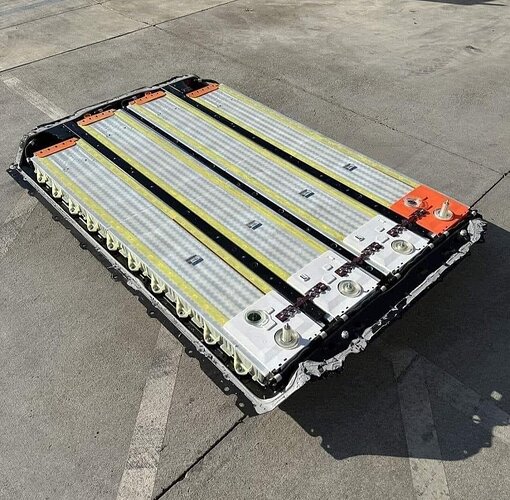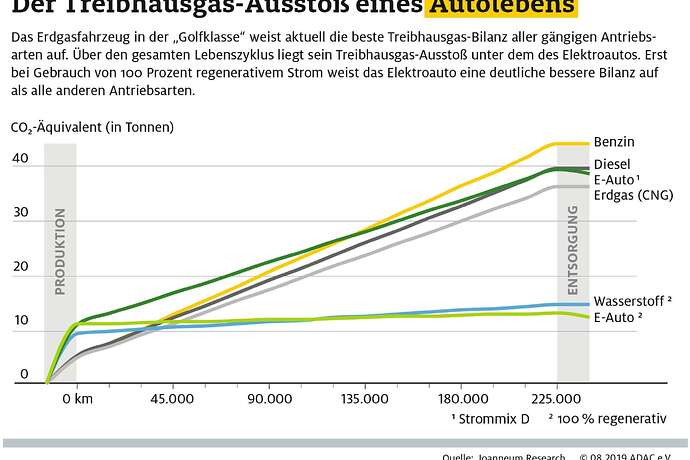Water is more expensive than petrol ![]()
Frightening thought really.
Thats my point. Government can and should do more and those decisions influence the way people do things. They dont.
There’s all sorts of options and incentives with plastic bottled water for example, ranging from an outright ban through to taxation or even incentives to recycle combined with legislation to improve recycling rates etc.
Best and most effective option is to use the tap.
People dont, because they dont like the inconvenience and dont give a fuck.
That’s on them, not the government
That’s what I don’t understand, isn’t it way more inconvenient to hunt down and buy a bottle every time you want a drink?
Not sure you’d exacly have to do much hunting down.
The inconvenience people can’t be arsed with is filling a bottle at home, then replenishing when they’re out I suppose.
Thats why you make it less convenient. Just like free plastic bags from supermarkets used to be.
People will always go for the easy option. Make the tap an easier option.
Or educate people not to be twats
One adjustment we made in our house last year was to stop (near as dammit) plastic water bottles in the house. We switched to tap water. Didn’t like the taste to be fair, but then we had a reverse osmosis system put in, so the kitchen, fridge, and ice, are all pure water. Tastes great, and our personal plastic use has gone way down.
Don’t get me wrong, we aren’t the most joined up family and there are inconsistencies in how we live our life - air conditioning, red meat, some non-essential travel for pleasure, etc.
But I think most people, apart from the most dedicated, are a mix in how many things they will be personally willing to do for the environment and the climate crisis.
My honest opinion is that we are screwed!
It needs a joined up government system, with countries coming together too, with incentives for the right behavior, and disincentives for the wrong behavior. I just don’t see the will to do it. I’ve lived through numerous cycles of warnings, summits, goals and agreements being set… only to not be adhered to.
As a kid I heard from my grandparents about WW2 and the whole-of-society effort, the war effort, where everyone turned their attention, and indeed the whole economy, toward doing their bit to combat an existential threat.
I don’t think that the general public has been able to wrap its arms around the existential threat of the climate crisis in the same sort of way. It’s not as tangible an enemy. And human nature being what it is, if there’s money to be made, people will go for the short term cash and not the longer term good. Also, with human nature being what it is, people tend to grow deaf to the message, and ignore the warnings. I suppose that’s why we have people throwing orange powder onto snooker tables and gluing themselves to things. They are desperately trying to get people’s attention.
Ultimately though, I think we are screwed.
Anyone with more will than me to research this able to confirm how accurate these claims are?
"This is a Tesla model Y battery. It takes up all of the space under the passenger compartment of the car. To manufacture it you need:
–12 tons of rock for Lithium (can also be extracted from sea water)
– 5 tons of cobalt minerals (Most cobalt is made as a byproduct of processing copper and nickel ores. It is the most difficult and expensive material to obtain for a battery.)
– 3 tons nickel ore
– 12 tons of copper ore
You must move 250 tons of soil to obtain:
– 26.5 pounds of Lithium
– 30 pounds of nickel
– 48.5 pounds of manganese
– 15 pounds of cobalt
To manufacture the battery also requires:
– 441 pounds of aluminum, steel and/or plastic
– 112 pounds of graphite
The Caterpillar 994A is used to move the earth to obtain the minerals needed for this battery. The Caterpillar consumes 264 gallons of diesel in 12 hours.
The bulk of necessary minerals for manufacturing the batteries come from China or Africa. Much of the labor in Africa is done by children. When you buy an electric car, China profits most.
The 2021 Tesla Model Y OEM battery (the cheapest Tesla battery) is currently for sale on the Internet for $4,999 not including shipping or installation. The battery weighs 1,000 pounds (you can imagine the shipping cost). The cost of Tesla batteries are:
Model 3 – $14,000+ (Car MSRP $38,990)
Model Y – $5,000–$5,500 (Car MSRP $47,740)
Model S – $13,000–$20,000 (Car MSRP $74,990)
Model X – $13,000+ (Car MSRP $79,990)
It takes 7 years for an electric car to reach net-zero CO2. The life expectancy of the battery is 10 years (average). Only in the last 3 years do you start to reduce your carbon footprint, but then the batteries must be replaced and you lose all gains made.
And finally, my new friend, Michael, made some excellent points: I forgot to mention the amount of energy required to process the raw materials and the amount of energy used to haul these batteries to the U.S. sometimes back and forth a couple of times.
But by all means, get an electric car. Just don’t sell me on how awesome you are for the environment. Or for human rights."
It takes 7 years for an electric car to reach net-zero CO2.
The whole thing sounds like an ill-informed rant but this comment sounds a bit weird. I don’t think it would ever reach net-zero. It may (will) reach the point whereby the total life emissions are less than an equivalent ICE vehicle. ADAC did a graphic on that a few years ago. I’ll see if I can find it.
I have no idea how accurate/inaccurate it is.
But I’d be interested to know as long as someone else does the fact finding ![]()
as with all of these kind of tech, its not where it begins, its the direction its heading…
so yes, im in total belief the absolute net gain from a EV at this point in time would be minimal at best…but its what we do with the tech that counts.
its one of those things that you were lamenting in the other thread about people needing to make the change…so if enough people purchase and put money in that particular industry, and that industry continues to improve (by people continuing to vote with their wallets for improvements) then and only then will we see the net gain.
i drive a diesel Hilux ute BTW, as i believe Toyotas to be proven in my industry , and even if i was so motivated, theres no EV that will do what i want it to do for my work.
its a shame that the bridging tech is making an obvious Bond Villan like Elon Musk so obscenely rich.
Here you go. This was meant to be a comparison of whether the electricity is produced by coal fired power stations or wind/electric etc:
The point at which total CO2 emissions are lower to a petrol vehicle are 37,500 km if renewables are used and 117,000km if it’s from a coal fired power station.
Years ago I did some work on emissions from fleets when they were looking into changing company car taxation to a CO2 basis. One of the other team members got the manufacturers to calculate how much CO2 was produced by their cars. I remember Nissan (who were producing the Primera and Micra at the time) came back with a figure that their cars cost between 2.5 and 3 years worth of CO2 emissions to produce. That would equate to around 40,000km usage so I doubt there is little difference between the emissions of either vehicle type.
But I’d be interested to know as long as someone else does the fact finding
I wish I’d saved away the research we did at the time. I got in a bit of trouble with that because I wrote a related article for Top Gear (which was my own work, not actually government research) that showed that diesel vehicles made no economic sense to the average driver. The received wisdom at the time was that diesels were a quick fix.
When I last had to look into this a few years ago the latest research seemed to suggest that electric cars had approx a 20% higher carbon footprint than combustion engine cars in the build phase. That equates to less than two years of driving being charged on the national grid to earn that back compared to combustion drinking. Lots of assumptions in that and I imagine a lot could have changed in the years since. Re your quote, I don’t see how any car could ever be considered to reach net zero!
I don’t see how any car could ever be considered to reach net zero!
Exactly. As I always say, the best car is no car.
I think the comparison is usually with regards to break-even point as was discussed above. They can never reach net zero, of course.
That said, some of the assumptions are off, especially around battery lifespan, which I think real-world usage suggests is longer than expected, especially considering the available data is from cars with battery technology a decade or older. I think many manufacturers already calculate the embodied production emissions (and a surprising amount is actually due to shipment of parts/the car itself rather than the production).
Ultimately though, a reduction of dependency on cars is probably a better way to go. Many car journeys could simply be made unnecessary by just improving public transport and active travel options, which would have the side benefit of improving traffic conditions for those who actually enjoy driving, and/or have no good alternative such as those who live rurally. That’s the real investment for drivers that the UK government should be making.
Ultimately though, a reduction of dependency on cars is probably a better way to go. Many car journeys could simply be made unnecessary by just improving public transport and active travel options
There are two things that I think are replacing a lot of ICE vehicles. eBikes and fibre optics.
I’m optimistic about e-bikes because I think they have already encouraged a lot of people off cars, and they are more efficient than electric cars simply because they’re lighter and therefore have much less deadweight to carry around.

